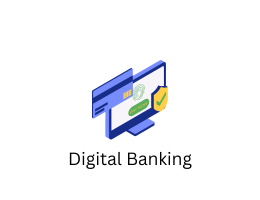
Exploring the Potential of Blockchain Technology in Financial Services
- By admin --
- Wednesday, 21 Jun, 2023
Introduction: Blockchain technology has emerged as a disruptive force in various industries, including financial services. This decentralized and transparent technology holds the potential to revolutionize traditional financial systems by enhancing security, reducing costs, and streamlining processes. In this article, we will delve into the transformative power of blockchain technology and its applications within the financial services sector.
Understanding Blockchain Technology: At its core, blockchain is a distributed ledger that records transactions across multiple computers in a secure and transparent manner. It operates on a decentralized network, where each transaction is grouped into a block and linked to the previous block, forming a chain. The key features of blockchain, such as immutability, transparency, and consensus mechanism, make it an ideal technology for financial services.
Enhancing Security and Reducing Fraud: One of the major advantages of blockchain in financial services is its ability to enhance security and reduce fraud. The decentralized nature of blockchain eliminates the need for a central authority, reducing the risk of a single point of failure. Transactions recorded on the blockchain are secured through cryptographic algorithms, making them tamper-proof. This significantly reduces the risk of data breaches and unauthorized access to sensitive financial information.
Streamlining Processes and Improving Efficiency: Blockchain technology has the potential to streamline various financial processes, leading to improved efficiency and cost savings. For example, traditional cross-border payments can be slow and costly due to intermediaries and complex processes. By leveraging blockchain, financial institutions can facilitate faster and more cost-effective cross-border transactions by eliminating intermediaries and automating the settlement process.
Applications of Blockchain in Financial Services: Blockchain technology can be applied to various areas within financial services. Smart contracts, which are self-executing contracts with predefined conditions, can automate and enforce agreements between parties, reducing the need for intermediaries. This can revolutionize areas such as trade finance, supply chain financing, and insurance.
Blockchain-based identity management systems can provide secure and tamper-proof digital identities, eliminating the need for cumbersome and vulnerable identity verification processes. This can enhance customer onboarding, Know Your Customer (KYC) procedures, and combat identity theft and fraud.
The issuance and trading of digital assets, such as cryptocurrencies and security tokens, are also facilitated by blockchain technology. Blockchain-based digital asset platforms can offer increased liquidity, accessibility, and transparency, enabling fractional ownership, democratized investments, and innovative fundraising mechanisms like Initial Coin Offerings (ICOs) and Security Token Offerings (STOs).
Conclusion: The potential of blockchain technology in financial services is vast and transformative. From enhancing security and reducing fraud to streamlining processes and improving efficiency, blockchain can reshape the financial landscape. However, challenges such as scalability, regulatory frameworks, and interoperability need to be addressed for widespread adoption. As the technology continues to mature and evolve, financial institutions and industry stakeholders must embrace the opportunities presented by blockchain to stay competitive in the digital age.





